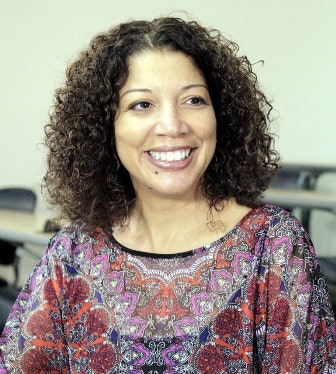
Q: Minority faculty have a particularly hard time in traditional universities. What has been your experience in terms of the specific reasons for this?
A: Difficulties experienced by traditionally underrepresented faculty members can often be traced to the lack of both institutional and informal support systems in place. Both schools and faculty members should be intentional and explicit about offering support for minority faculty. Often, colleagues with good intentions have no perspective or context for the additional difficulties faced by faculty of color. Someone has to start the conversation.
Q: What are some of the specific challenges for minority faculty and some of the symptoms of their struggle? There was an article recently in Diverse (in 2012) that suggested minority faculty experience higher levels of job related stress. Have you observed these kinds of trends in your experience? If so, what strategies have worked to combat these types of problems?
A: Given the multiple responsibilities imposed on faculty members and the increasing workload many of us are juggling today, it is not surprising that faculty members are often struggling with job-related stress. Adding an extra layer of otherness to those duties—and the especially low numbers of faculty of color in the law school arena—makes things even more challenging. Even faculty members who do not deal with institutional bias are coping on a regular basis with microaggressions in the form of bias in student evaluations, slights by colleagues and an expectation that we have to be more qualified than our non-minority counterparts. In my own experience, I have also struggled with “imposter syndrome,” fueled in large part by the novelty of being a woman of color from a low socioeconomic background without so-called fancy credentials. Thanks in large part to mentoring and support I’ve received from colleagues of all backgrounds, I’ve reframed my story. I take great pride in bringing a unique perspective to the table, and I am even more proud to do my part to inspire students who share my background.
Q: Shifting emphasis slightly, what are some of the strategies used at the Society of American Law Teachers to mentor minority faculty?
A: One of SALT’s core values is diversity. It informs our work within and beyond the classroom. It also drives us to create programming that will increase minority representation on both sides of the podium. We strive to promote education equality in all arenas. This translates to our formal mentoring program, “Breaking In” programs designed to increase the numbers of minority law teachers, tips for new teachers at our teaching conference, programming for diversity in law school leadership and B.A. to J.D. Pipeline Programs held throughout the country to increase access to law school for students of color. After all, a diverse law school student population is the foundation for more diversity among law faculty. But one of our most successful strategies has been the network we sustain through our members. Each SALT member is committed to offering support to underrepresented faculty members. Sometimes the support means advocating on their behalf to protect tenure and security of position. Other times that support means sharing a syllabus. And sometimes it means taking the time to listen and offer some advice.














